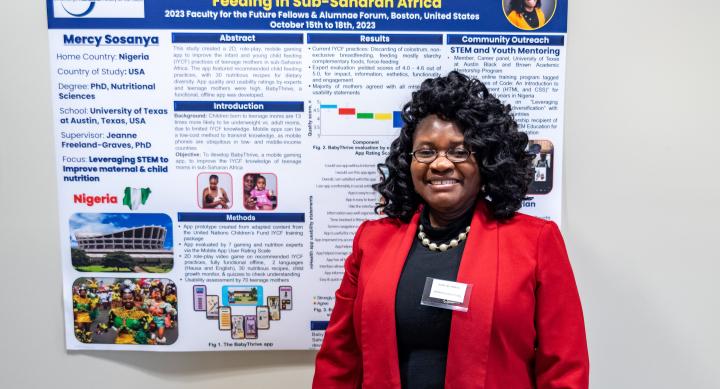
According to UNICEF, an estimated two million children in Nigeria suffer from severe acute malnutrition (SAM), with only two out of every 10 children receiving treatment. In addition, 7% of women of childbearing age in Nigeria also suffer from acute malnutrition.
Before beginning her doctoral program in nutritional sciences at UT Austin, Mercy Sosanya (Ph.D., ’24) spent nearly a decade of her life exploring the issue of nutrition in her home country of Nigeria. In 2016, Sosanya had the opportunity to visit a rural village in the northern Nigeria, where she saw firsthand the devastating effects poor diets had on that community. She observed children with protruding ribs, swollen stomachs, wasted limbs and sparse hair – all recognizable signs of severe undernutrition.
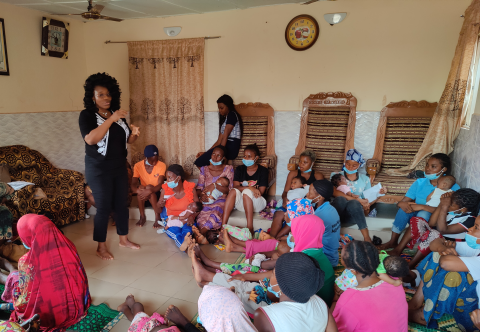
This experience inspired Sosanya to better understand the root causes of this problem and develop interventions in collaboration with colleagues in northern Nigeria. With the help of the Harrington Dissertation Fellowship, she developed a body of research during her doctoral studies aimed at addressing this complex problem.
The Donald D. Harrington Fellows Program, launched in 2000, was created to support talented scholars of all disciplines who are then charged with sharing their knowledge and success with future generations. The Harrington Program includes fellowships to recruit top graduate students from around the world and fellowships to support doctoral students during the writing of their doctoral dissertations.
The Graduate School awards a small number of Harrington Dissertation Fellowships each year, which include a stipend between $45,000-$50,000 for 12 months, tuition and required fees, an allowance for student medical insurance and $2,000 for miscellaneous expenses. The fellowships enable promising students to focus on researching and writing during a critical phase of their graduate careers.
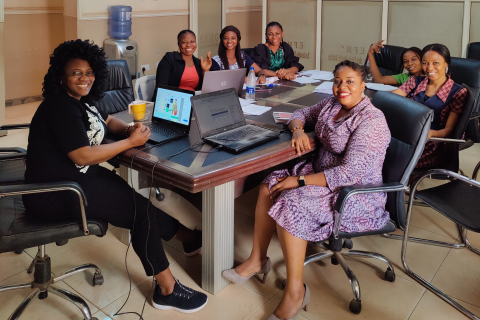
Sosanya’s research prior to coming to UT included a comprehensive evaluation of the foods consumed by people in the state of Bauchi and an exploration of the factors underlying their food consumption. The research team, led by Sosanya, interviewed 718 mothers, 718 fathers and 48 adolescent girls, documenting their food preferences and perceptions. The data they collected shed light on the intra-personal, interpersonal, sociocultural and environmental factors that influenced their diets. As a Harrington Dissertation fellow, Sosanya further analyzed this data, and found a high prevalence of inadequate child feeding practices among mothers, noting that improving nutrition knowledge was a key solution. She also found that teenage girls had minimal nutrition knowledge, often married early at 13 to 17 years, and their preferred foods were limited in diversity. The key factors in their food preferences were desirable health effects, sensory attributes, and the contribution of foods to a desirable body image for marriage.
In a paper published in January of this year, entitled “Why Acute Undernutrition? A Qualitative Exploration of Food Preferences, Perceptions and Factors Underlying Diet in Adolescent Girls in Rural Communities in Nigeria,” Sosanya shared these important findings.
This research study also led Sosanya to create BabyThrive, a role-play gaming app that teaches young mothers about breastfeeding and nutrition. Available in both English and Hausa, the app offers helpful nutrition resources to families using audio and visual design features that make its information more accessible to users with a limited ability to read.
Sosanya documented the process of developing the app in her most recent paper, “BabyThrive: Development and validation of a child feeding mobile gaming app for teenage mothers in Nigeria.” The paper, currently under review, validates the use of the app as an easy and effective strategy to disseminate critical knowledge about child-feeding to young mothers.
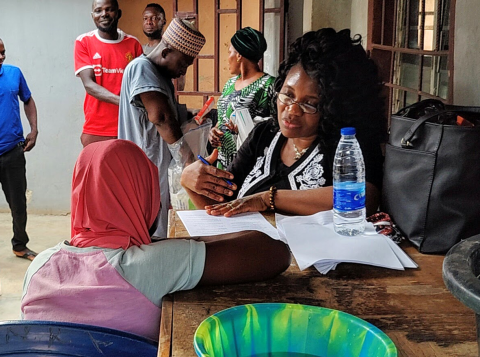
Results of the study show promising outcomes: a 7-fold increase in knowledge of exclusive breastfeeding, and a 12-fold increase in total nutrition knowledge after using the app. A clinical trial of BabyThrive is currently underway to further determine its long-term impact on child feeding knowledge and other key indicators of child health.
Sosanya says that communicating the importance and urgency of her research has been the cornerstone of her success, and she credits the Harrington Fellowship with giving her the confidence she needed to effectively communicate the impact of her work.
“The opportunity to speak at the Harrington annual research symposium was simply amazing - the engagement from the audience boosted my confidence and further affirmed that my research is important and making a difference. Because of the fellowship, this past year alone, I have been able to make significant progress, making several presentations, publishing two scientific papers and submitting two other papers for journal publication.”
In April 2024, Sosanya and three other colleagues received awards at UT’s inaugural Empower Your Pitch competition, a contest designed to equip graduate students with the strategies needed to effectively communicate complex ideas in just three minutes. Sosanya won the Outstanding Creativity Award for her presentation, "Can the BabyThrive gaming app be a game changer for child nutrition in Nigeria?" She was awarded a cash prize and will travel to Washington D.C. to compete with students from Johns Hopkins University and Columbia University.
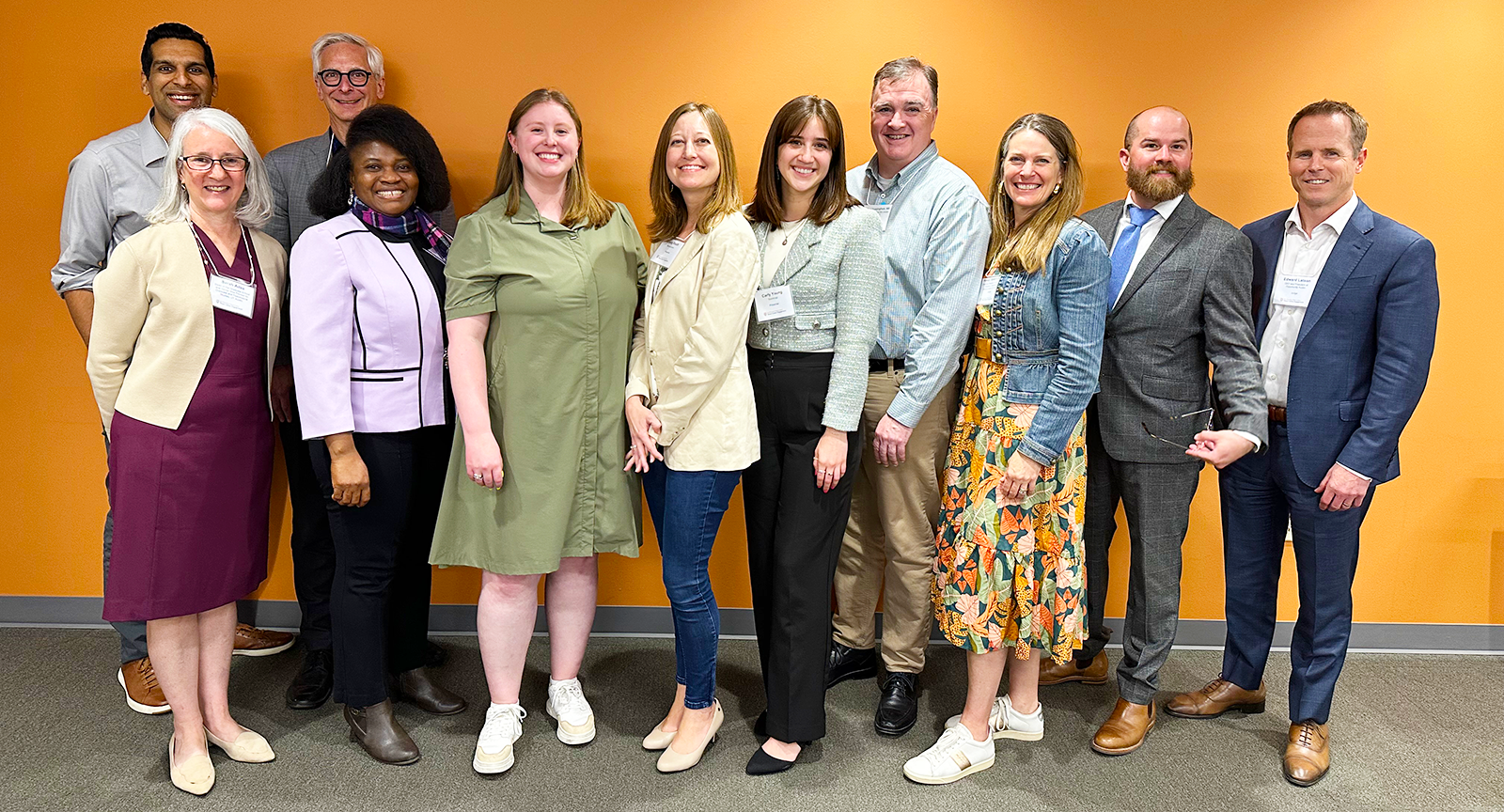
Post-graduation, Sosanya plans to keep building on her research. For her next project, she wants to leverage what she’s learned with BabyThrive, but instead focus on parents in the United States. The project, called “It Takes a Mobile Village,” will investigate the needs of American parents relative to child feeding and leverage mobile app technology and social networking to address any challenges.
“The study will be a three-arm randomized controlled trial with a control group, an app group, and an app and social networking group. It is expected that this intervention will improve parental child feeding experiences, child nutritional status, psychosocial wellbeing, self-efficacy in child feeding and strengthen parental social networks.”
She has also had interest in her work from other, more unexpected, areas of the world.
“I have been in contact with Rani Ukhengching Marma, the ceremonial queen of the indigenous people of the Mong Circle in the southeastern part of Bangladesh. In collaboration with a group of public health scientists, she prepared an Infant and Young Child Feeding training manual and Maternal and Child Handbook for her people, and when she heard about my project, she became interested in creating a mobile gaming app to digitize the IYCF training manual for her village. It’s an incredible development and I’m excited to move forward.”
Initially aiming to study medicine, Sosanya turned her focus to the urgent issue of nutrition, an area that not only integrated her love of the sciences but included a larger cross section of subjects like sociology and psychology. Working as a nutritionist afforded her an opportunity for broader interaction with clients, something she felt was critically important to understanding their challenges.
Looking back on her time at UT, Sosanya notes the sense of belonging she developed with her peers as one of her highlights.
“Although I enjoyed the full support and encouragement of my Ph.D. mentor, Dr. Jeanne Freeland-Graves, my department chair, Dr. Molly Bray, and many of my professors, being an international student at UT was still quite a lonely and isolating experience at the start. Meeting other Harrington Fellows was the very high point of my time at UT because, apart from my lab mates, my best friends at UT were other Harrington fellows.”